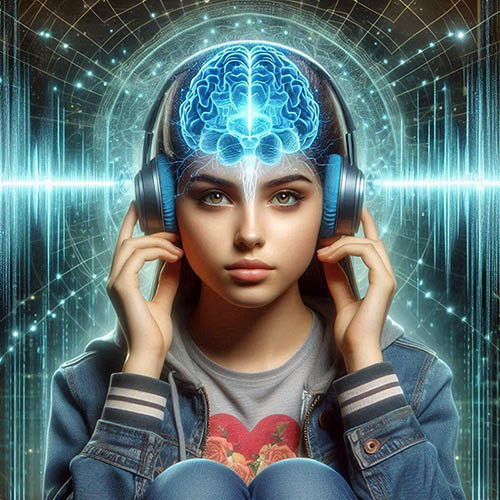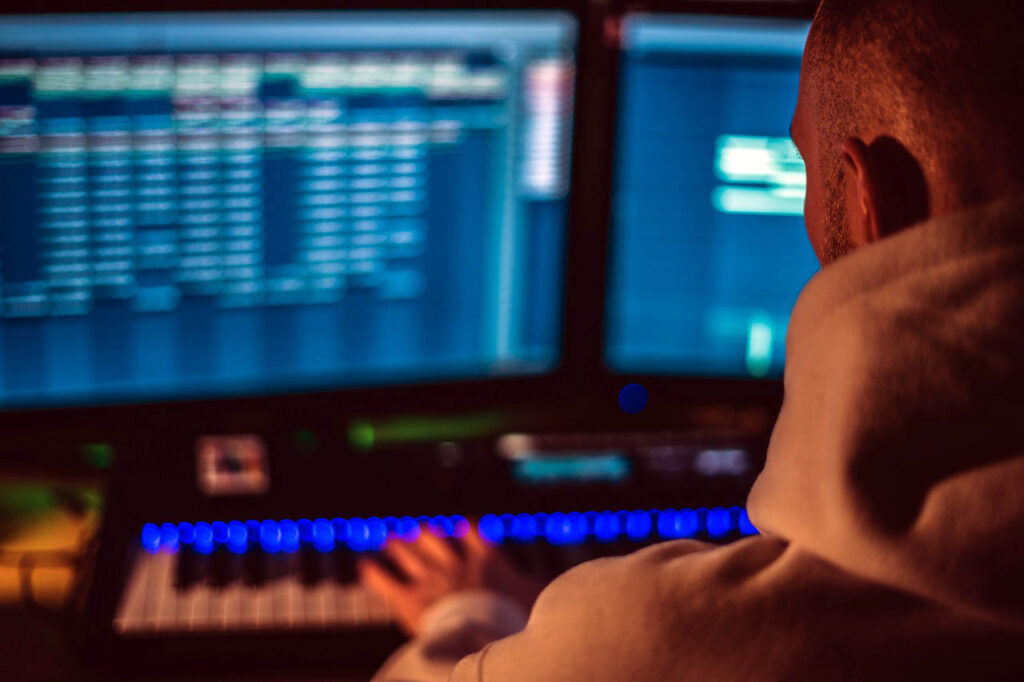Cover Song Licensing Explained: If you want to release a cover version of another artist’s song, it’s essential to understand what you can and can’t do. Specific rules define a cover song. You’ll need licenses from publishers, even if you plan to offer your cover song for free.
To begin, listen to a few examples of cover songs we have created and licensed for distribution. We recorded all the samples using only our voices, so we own these sound recordings entirely. However, the compositions (lyrics and melody) were written by others. We obtained two separate licenses from the writers’ publishers: one for streaming the covers and another for providing digital downloads. Continue reading to learn about the licenses you’ll need.
Sweet Dreams (Eurythmics)
(Acapella)
The Business (Tiësto)
(Acapella)
Addicted to You (Avicii)
(Acapella)
Bring Me To Life (Evanescence)
(Acapella)
- Is it a cover song or a remix?
- What licenses do I need to release a cover song?
- Can I post a video of my cover song to social media without a licence?
- I can’t sing, can I use an acapella download that I’ve found?
- Can I use AI to “re-sing” the original a capella?
- Does Free Vocals provide cover songs?
- Artists that we’ve covered and members have voted for
- Conclusion
Is it a cover song or a remix?
A cover song is a new version of another artist’s song, where you record all parts yourself. This is without using any samples from the original recording. The key rule is to keep the original lyrics and melody, ensuring the essence of the song remains intact. You can use different sounds or instruments but must retain the core elements. Changing any lyrics or melody transforms the cover into a derivative work. This requires a custom licence from the publisher, which can be complicated and expensive to obtain. Therefore, let’s focus on cover songs that keep the lyrics and melody the same.
In contrast, a remix involves sampling the original recording and rearranging it with your own sounds. Releasing a remix requires a custom licence from the original recording artist’s record label. Plus you will need separate licenses from the original writers’ publishers.
What licenses do I need to release a cover song?

Let’s take a closer look at cover song licensing. To release your cover song on streaming services like Spotify, YouTube Music, and Apple Music, you can do so easily through a distributor that provides cover song licensing. The distributor handles licensing with the original writers’ publishers and pays them royalties each time your cover song is streamed. This process is straightforward as it happens in the background. You only need to provide your distributor with the original writers’ names, which you can find in the song credits. Your distributor will also manage the reporting.
However, offering downloads of your cover song, even for free, is more complicated. You must pay royalties to the original publishers every time your cover is downloaded. Obtaining a separate licence is your responsibility. Numerous companies offer this service at a relatively affordable rate—around $30 for 100 downloads. This fee includes a rate of 12.4 cents per cover song download for songs of 5 minutes or less. This is set by the Copyright Royalty Board, plus you pay the licensing company’s administration fee. You must pay for a certain number of downloads in advance. The main challenge is tracking your cover song’s downloads and upgrading your licence if you exceed the initial amount.
Can I post a video of my cover song to social media without a licence?
You need a sync licence from the original copyright holders to post a video of your cover on social media. This isn’t covered by a streaming licence from your distributor. A sync licence is crucial for uploading a cover song to video-sharing platforms like YouTube, Instagram, or TikTok. Many believe that all social media sites allow you to post cover songs because it’s common practice, but this doesn’t guarantee coverage. Some platforms, like YouTube, have agreements that may allow you to post covers without obtaining your own licence. However, but this can vary and might involve revenue sharing with copyright holders. In some cases, very short clips or parody covers might fall under “fair use”. Be careful as this is a grey area and it’s risky to rely on without legal consultation.
If you prefer not to obtain arrange your own cover song licensing, the safest approach is to release your cover to streaming services through a distributor. Then, you can post links to your properly licensed cover song on social media. Avoid the risk of posting cover songs on social media without a licence.
I can’t sing, can I use an acapella download that I’ve found?
If you’ve found an acapella download from the original recording, it’s likely that someone extracted it and uploaded it without the original record label and publisher’s permission. These downloads are technically illegal, and using them would mean you’re creating a remix, not a cover song. If you extract an isolated vocal from the original recording yourself, you’re creating an illegal copy. As mentioned earlier, this requires a licence directly from the original record label (for the sound recording) and the original publisher (for the lyrics and melody). While it’s possible to licence remixes, it can be difficult and expensive. To do it properly, you need a legal copy of the original vocal recording from the copyright holder, usually the artist’s record label. Then, obtain a remix licence for both the sound recording (from the label) and composition (from the publisher).

Can I use AI to “re-sing” the original a capella?
Some AI companies offer a service to create a new vocal with a different voice using the original recording as a source. Be cautious with this approach. The problem is that this is essentially an advanced pitch shifter that can preserve nuances of the original recording. Even if it sounds like a different vocalist recorded a new version, it’s still the original recording with post-production tweaks. Unless you’ve recorded the vocals yourself, using AI to “re-sing” an acapella found online would still be considered a remix, not a cover song.
Does Free Vocals provide cover songs?
You can listen to examples of our cover songs on YouTube Music, Spotify, Apple Music, and other major streaming services. We previously licensed these cover songs as downloads for producers to use in their productions, but we are now focusing on our original material. For now, you can listen to our cover songs for inspiration and as examples of what defines a cover song.
Thanks to all the music producers who downloaded our cover song acapellas and everyone who voted for them! Below is a list of artists we previously provided cover songs for download and that our members voted for:
Conclusion
Releasing a cover song is a fantastic way to honour an artist you admire while showcasing your creativity. However, navigating the legal landscape is crucial to ensure your release is both compliant and sustainable. Understanding the difference between a cover song and a remix, obtaining the necessary licenses, and avoiding unauthorised samples are all essential steps. By taking these precautions, you respect the original creators and protect your work from legal complications. Remember, the goal is to share your interpretation of a beloved song while upholding the integrity and rights of the original creators. Take the time to get it right—your music and your audience deserve it.
If you’re looking for custom narration for your tracks or social media content then check out our voice clones on Eleven Labs!
Artists that we’ve covered and members have voted for
Ace of Base, Adele, Alanis Morissette, Alice Russell, Alicia Keys, Aloe Blacc, Amy Winehouse, Ariana Grande, Ashanti, Avicii, Avril Lavigne, Axwell, Baby D, Backstreet Boys, Basement Jaxx, Benny Benassi, Beyoncé, Billie Eilish, Boyz II Men, Brandy, Britney Spears, Bruno Mars, Calvin Harris, Cardi B, Chaka Khan, Christina Aguilera, Ciara, Clean Bandit, Coldplay, Craig David, D’Angelo, Daft Punk, Demi Lovato, Destiny’s Child, Diana Ross, Dilba, Disclosure, DJ Fresh, Donna Summer, Drake, Dua Lipa, Ed Sheeran, Eminem, Erykah Badu, Eurythmics, Evanescence, Fatboy Slim, Florence and The Machine, Fugees, George Michael, Gorillaz, Jamelia, James Arthur, Jamiroquai, Janet Jackson,
Jason Derulo, Jennifer Lopez, Jess Glynne, Jessie J, Jhene Aiko, Jocelyn Brown, Joss Stone, Justin Bieber, Justin Timberlake, Kanye West, Kelis, Kelly Clarkson, Kelly Rowland, Kylie Minogue, Lady Gaga, Lenny Kravitz, Lorde, Luther Vandross, M.I.A, Madonna, Mariah Carey, Maroon 5, Martin Garrix, Marvin Gaye, Mary J Blige, Mikky Ekko, Miley Cyrus, Missy Elliott, Modjo, Monica, Ne-Yo, Nelly, Neneh Cherry, Nervo, Nicki Minaj, NSYNC, Pink, Pharrell Williams, Rage Against The Machine, Ray Charles, Rihanna, Rita Ora, Robin S, Robyn, Sade, Sam Smith, Sean Paul, Sia, Snoop Dogg, Stevie Wonder, Supremes, Taylor Swift, The Chainsmokers, The Weeknd, Tiësto, Tina Turner, Travis, Travis Scott, Usher, Whitney Houston, Zara Larsson




